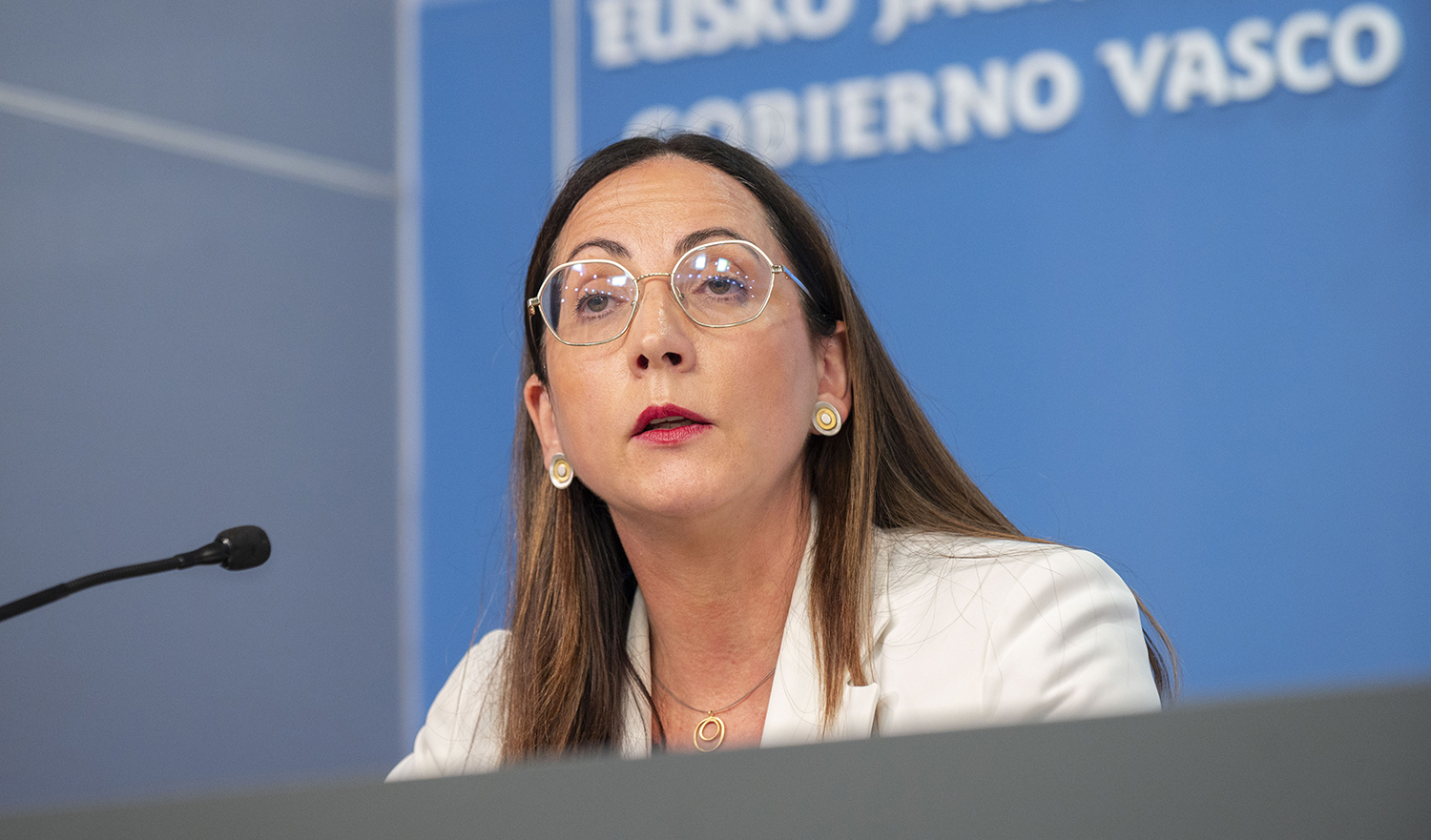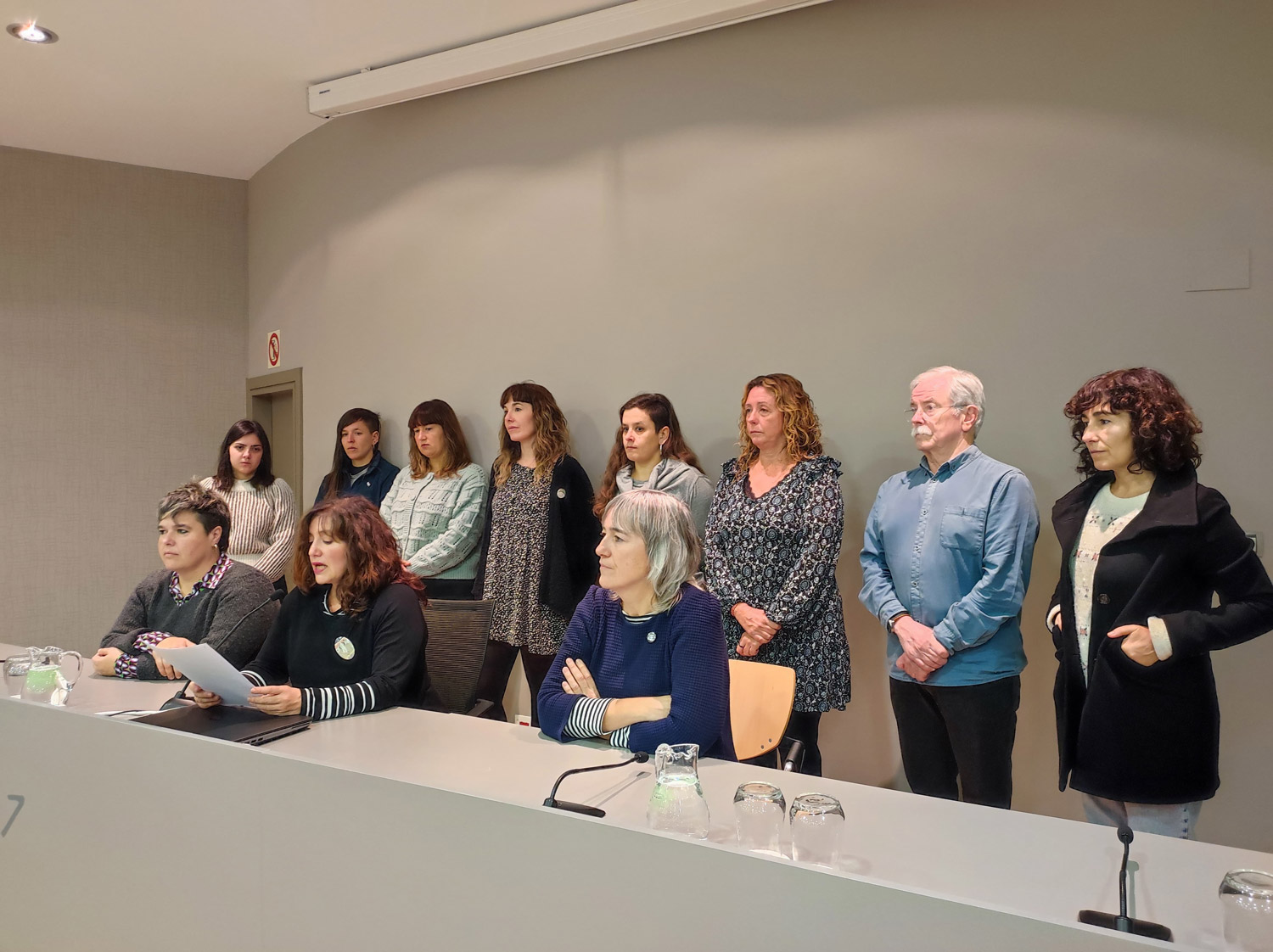Reactions to the Education Bill: Basque, Segregation and Public Education Service, main objectives of criticism
- Immediately after the submission of the CAPV Education Bill, the new text has received numerous reactions, including the complaint that the Basque public education service equips both networks (to the detriment of the public network), the lack of a generalised model of linguistic immersion and the insufficiency of anti-segregation measures.

“The education bill needs more Basque”
The unions reaffirm the criticism made by the Council of Euskalgintza: the model of widespread immersion has not been taken up (current models A, B and D have not been exceeded either). Interestingly, the PSE has rightly criticised the opposite: the new law can open the way to overcoming current language models, and does not agree with that.
The Council has also missed instruments to properly measure language competence, and has expressed concern that the draft law “does not specify how the multilingual system should be interpreted, how each educational centre should apply, or how the exposure in each language will be. Determining the minimum exposure hours is essential for the new generations to be able to euskaldunize,” he said. She has positively valued the need for students to reach the B2 exit profile in Basque at the end of the compulsory language and the “recognition of knowledge of the Basque culture”.
CCOO says that believing that the Christian School will comply with the principle of secularism is “absurd”. STEILAS says that “it will be difficult for concerted centres to be laity, free or Euskaldunes because the identity of the centre must be respected”
“Equip the public network with the concerted network”
Both the Agreements and the STEILAS, ELA and CCOO trade unions have been particularly critical of the Basque Public Education Service that is now enshrined in the Law (every center of this service will receive 100% public funding): STEILAS and CCOO have denounced that in this service the public network is equated with the concerted network and that “perpetuates the educational system”.
They criticize that the law does not regulate the working conditions of public education, that it does not open up the possibility of increasing educational investment, that the council that will be created to negotiate the rights of public school workers and staff concerted at the same table is not effective and that “real ways” are not opened to publish the concerted centres. “No real action is taken to make the Basque public school the central axis of the education system and competition between schools is encouraged,” says STEILAS.
In the fight against segregation, the three trade unions state that the problem of the inadequacy of the defined and structural measures is not really addressed (emphasising, for example, that no single municipal registration office has been set up).
CCOO says that believing that the Christian School will comply with the principle of secularism is “absurd”. In this regard, STEILAS says that “it will be difficult for the concerted centres to be laity, free or Euskaldunes because the identity of the centre must be respected”.
The LAB syndicate values more positively the need to concretize and develop more measures to put the public school in the center and fight against segregation, but points out that the contributions made by the union itself have been included in the bill: “the requirements to impose on the centers that will receive public funds have been determined, an administrative unit has been created to control that the fees are not charged, it has been included as a lack of doctrine, that the processes of
EH Bildu: "The public service has been well regulated and well defined, with well-defined obligations. Key measures against segregation and for inclusion
“We see fundamental changes”
EH Bildu has welcomed the changes that have taken place from the first draft of the draft bill to the bill adopted by the Governing Council. “We see fundamental changes in the right direction,” said EH program director Bildu, Pello Otxandiano, who stressed that the Basque Public Education Service has been “well regulated and well defined” and that “duties are well expressed”. The new text “sets out key measures against segregation and for inclusion, relating to the vulnerability rate or access of students”, he adds. It considers that “concrete measures to achieve real gratuity” have been taken and that the language model section has been “defined and improved”.
He says that this law is “a historic opportunity” and that they see how to improve: that the bill will jump to the Basque Parliament, “EH Bildu will table amendments, because the goal is to get the best law.” This week he announced a further reading of the bill.
The article entitled “From the first draft of the CAV Education Act has been amended to the bill and has not been amended” explained the details of the new text.
Why concerted teaching?
The new Education Act adopted by the CAV against most public school officials aims to ensure that concerted education is free of charge through the financing of public authorities. The Spanish State has also announced a significant increase in public... [+]
Hunters, Marianistas, Niño Jesús, CEU San Pablo - Virgen Niña, Carmelitas, Presentation of Mary, Vera Cruz, NClic, San Viator, Escorapias, Scholapios, Bárdarias, Nazareth, Immaculate Conception, Hogar San José, Egibide. More Olabide by Eusko Ikastolen Batza. Finally, the... [+]
In response to the numerous statements of the new Education Advisor, Begoña Pedrosa, Law 17/2023 on Education will be implemented at the beginning of the course, approved in Parliament with the sole support of the PNV and the PSE. This implementation will entail the application... [+]
Who orders us ...?
The Basque Government has just been set up and the Minister for Education will be Begoña Pedrosa. Being a vice-counselor in the previous legislature and being one of the founders of the new Education Law passed last December, we are allowed to ask some... [+]
The recently passed Education Act is as bad as it is new. Throughout the processing process there has been a broad social sector against the spirit of this law, and this opposition has been greater in the face of its adoption. We want to make public the assessment and reflection... [+]
The new Education Act, which had to be born of consensus, was adopted in anger and disagreement. The lack of agreement is due to the public-private question and linguistic models. A lot of pity.
In this we follow the Spanish model, because in the CAPV we are not able to lay... [+]
Those of us who write and sign these lines are young people between 20 and 26 years old who have joined us in the context of the generational relay of Euskalgintza. In our case, we have decided to contribute to the struggle of the Basque Country in the Basque Country from... [+]
















